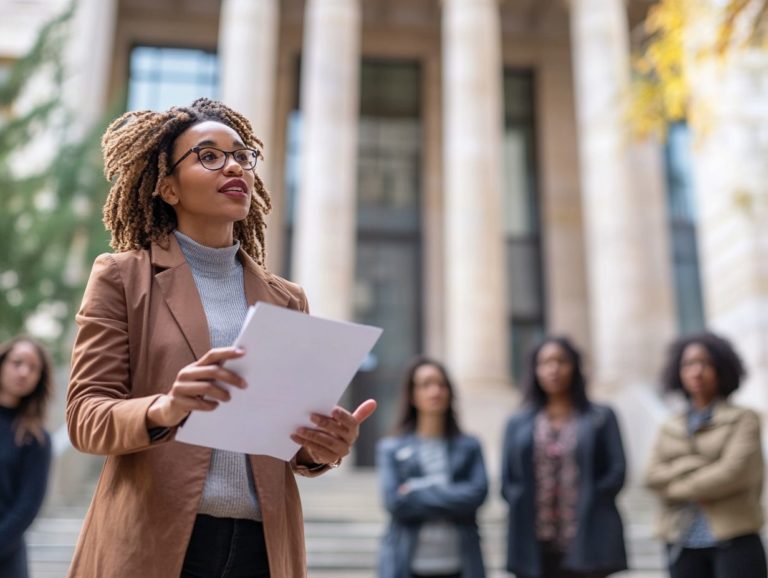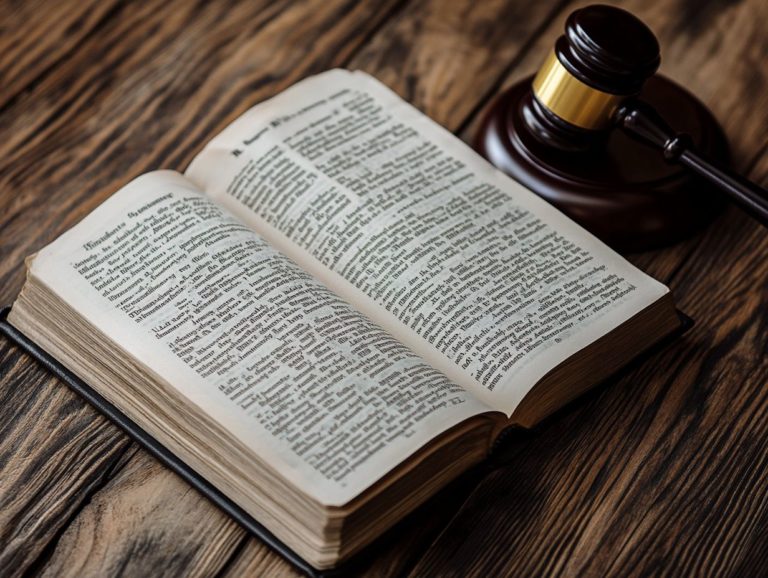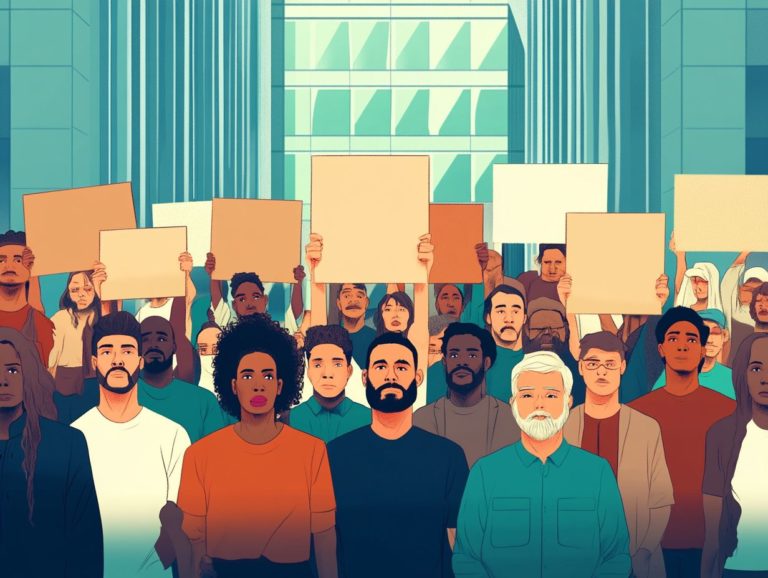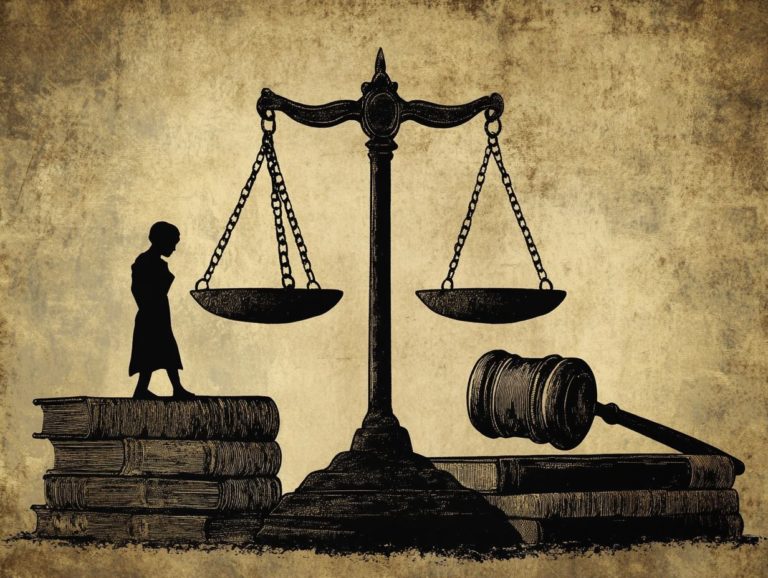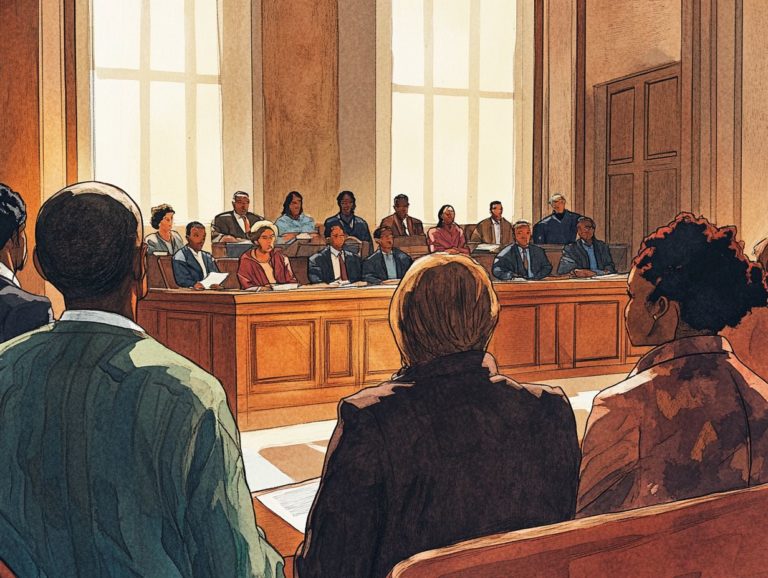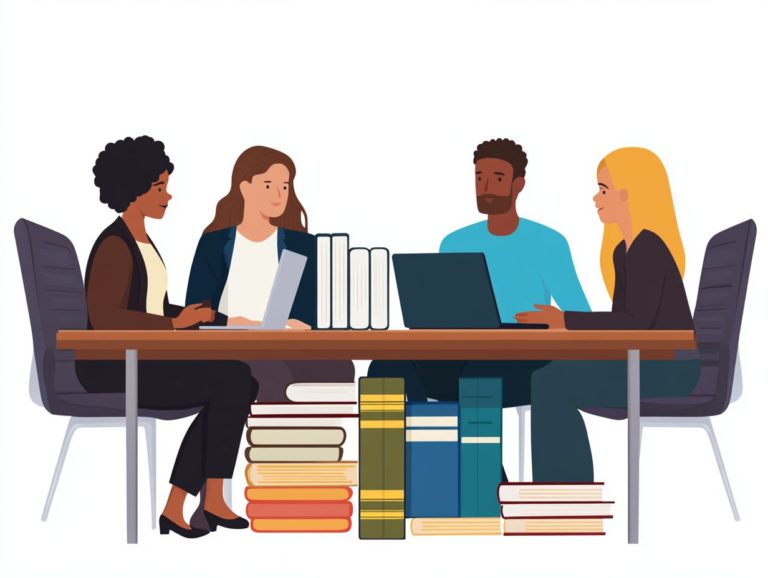Rights of the Accused: Common Violations
In the intricate realm of criminal justice, the rights of the accused serve as a fundamental safeguard for fairness and justice. Understanding these rights is essential for those facing charges and for society at large.
This exploration delves into what constitutes the rights of the accused. It illuminates common violations encountered within the legal system and examines their profound impacts. You will discover effective ways to protect and advocate for these rights, ensuring that justice is accessible to all, not just a privileged few.
Embark on this journey with us as we navigate this crucial aspect of the legal landscape.
Contents
- Key Takeaways:
- Understanding the Rights of the Accused
- Common Violations of the Rights of the Accused
- The Impact of Rights Violations on the Accused
- Protecting the Rights of the Accused
- Advocating for the Rights of the Accused
- Frequently Asked Questions
- What are some common violations of the rights of the accused?
- Can the rights of the accused be violated during the arrest process?
- What is considered a violation of the right to due process?
- How does police misconduct violate the rights of the accused?
- What can be done if a person’s rights as an accused are being violated?
- How can the rights of the accused be protected from common violations?
Key Takeaways:
- The rights of the accused are essential to ensure a fair and just legal process.
- Common violations include denial of legal counsel, coerced confessions, and excessive bail.
- These violations can lead to wrongful convictions and the loss of basic human rights.
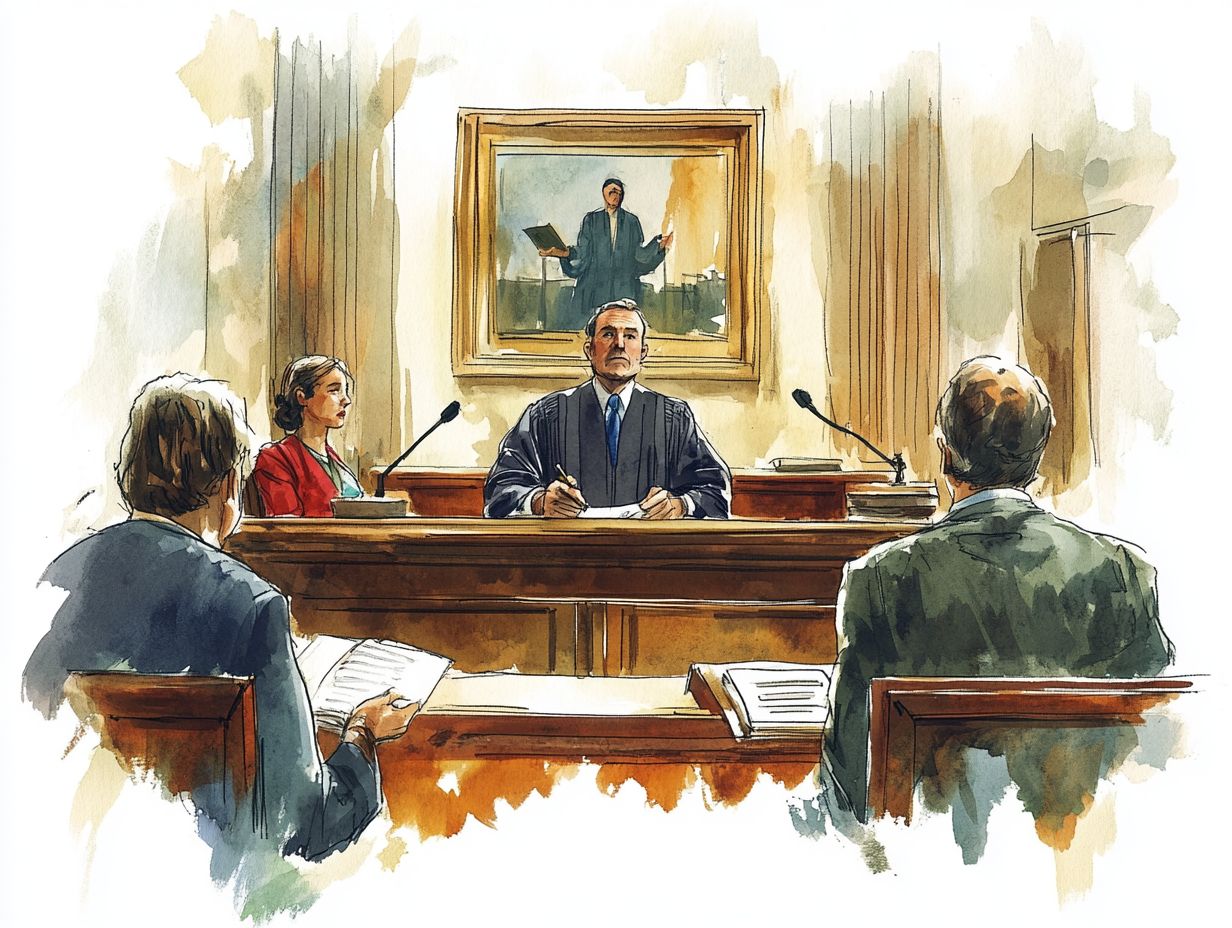
Understanding the Rights of the Accused
Understanding the rights of the accused is crucial within the criminal justice system. This is especially true regarding the legal protections afforded by the U.S. Constitution and the Bill of Rights.
These rights act as vital safeguards against unlawful searches and arbitrary detention. They also protect against violations of personal freedoms.
The Fourth, Fifth, Sixth, and Eighth Amendments clearly outline the legal boundaries that law enforcement must respect. This ensures that you, as an accused individual, receive due process and fair treatment throughout court proceedings.
What Are the Rights of the Accused?
The rights of the accused encompass a range of legal protections designed to ensure that you receive fair treatment throughout the judicial process.
One of the most important rights is the right to remain silent, famously articulated in the Miranda Warning. This safeguard prevents self-incrimination and allows you to avoid saying anything that could be used against you.
You also have the right to legal counsel, ensuring that a qualified attorney represents you during proceedings and navigates the complexities of the law on your behalf.
The Constitution also protects you from unlawful searches. Law enforcement must establish probable cause before infringing on your personal privacy. This adherence to due process ensures that allegations against you are based on reasonable suspicion, creating a fair environment in which you can defend yourself effectively.
Common Violations of the Rights of the Accused
Common violations of the rights of the accused can arise at multiple stages of the criminal justice process, often resulting in serious consequences for those facing charges.
These violations may manifest as police misconduct, including unlawful searches and seizures that violate the Fourth Amendment. They can also arise from ineffective legal representation that jeopardizes your right to a fair trial.
Such breaches of legal rights can significantly influence the outcome of criminal cases and undermine the integrity of the judicial system as a whole.
Examples of Rights Violations
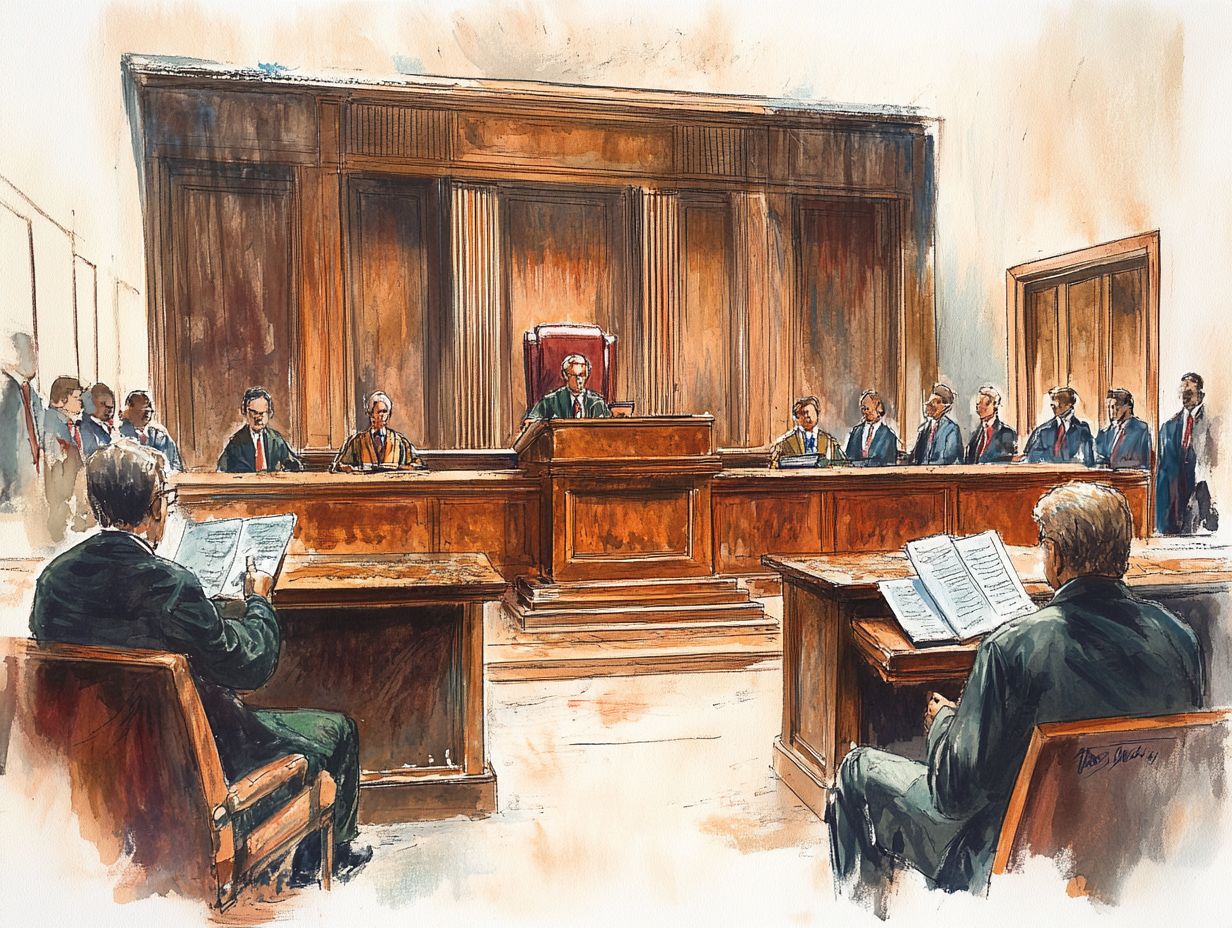
Examples of rights violations you might encounter include unlawful searches conducted without probable cause, coercive police interrogation tactics, and the withholding of exculpatory evidence evidence that can prove a defendant’s innocence during courtroom proceedings.
In many instances, these violations reveal themselves through unsettling experiences. For example, individuals may be subjected to aggressive questioning without legal representation, or officers might enter homes without warrants, similar to the landmark case Mapp v. Ohio.
During trial proceedings, the failure to disclose critical evidence, as illustrated in Brady v. Maryland, undermines the integrity of the judicial process and can pave the way for wrongful convictions.
Such incidents illustrate the profound impact these violations have on the lives of those affected. They often lead to long-lasting repercussions and a deep-seated distrust in the legal system.
If you think your rights have been violated, reach out to a legal expert today!
The Impact of Rights Violations on the Accused
The impact of rights violations on the accused can be deeply unsettling, often resulting in wrongful convictions and a significant loss of trust in the judicial system.
When legal protections are compromised, individuals may confront unjust criminal charges without the benefit of proper legal representation or a robust defense strategy. This erosion of due process the legal rights that ensure fair treatment in the judicial system doesn t just affect the accused; it also undermines the integrity of the entire criminal justice system.
Consequences and Effects
The consequences of rights violations can lead to devastating effects on individuals, including wrongful convictions that alter their lives and futures in unimaginable ways. Such wrongful convictions don t just strip individuals of their freedom; they leave lasting emotional and psychological scars.
The ripple effects extend to families and communities, fostering a sense of injustice and eroding trust in the legal system. As individuals seek to prove their innocence, they must work through the appeals process, where the significance of legal protections becomes abundantly clear, serving as essential safeguards against potential miscarriages of justice.
Strong legal representation and a solid understanding of appellate procedures are essential as individuals navigate this challenging landscape. This underscores the pressing need for comprehensive reforms to ensure that the rights of all individuals are rigorously upheld.
Protecting the Rights of the Accused
Safeguarding the rights of the accused is essential for upholding the integrity of the justice system. It ensures that individuals facing criminal charges are granted their constitutional rights throughout the entire legal process.
This commitment not only reinforces fairness but also preserves the foundational principles of justice for all.
Legal Protections and Resources
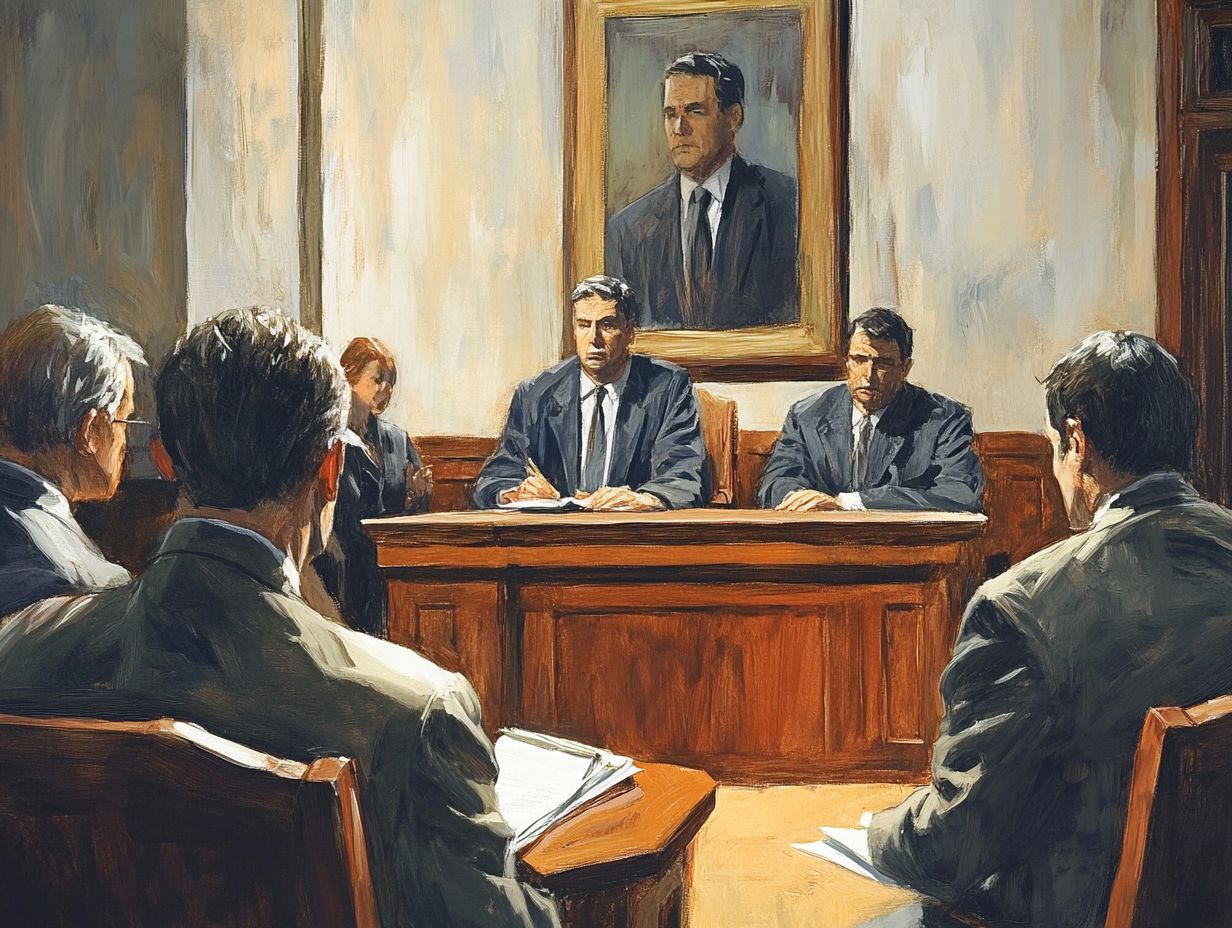
Legal protections and resources are essential for anyone accused of a crime, providing support to ensure that due process is maintained throughout the criminal procedure. Access to qualified defense attorneys is not just a privilege; it s a fundamental right. These legal professionals are your guides, helping you navigate the often complicated legal system with confidence and expertise.
For those who might find private counsel financially out of reach, various legal aid organizations offer valuable resources, effectively bridging the gap and promoting fair representation. Community programs often offer workshops and consultations designed to educate individuals about their rights, empowering them to take an active role in their own defense.
These resources are vital in advocating for transparent legal processes, reinforcing the significance of justice in every aspect of criminal proceedings.
Advocating for the Rights of the Accused
Advocating for the rights of the accused is essential in championing civil rights and preserving the integrity of the judicial system. It ensures that fairness and justice are upheld for every individual, irrespective of the charges they face.
Steps to Take and Organizations to Support
Get involved with local advocacy by supporting organizations dedicated to civil rights and ensuring access to experienced defense attorneys. By engaging in local campaigns, volunteering with defense-focused legal aid groups, or diving deep into the complexities of criminal law, you can truly make a difference. It s essential to engage in conversations about the need for equitable treatment within the judicial system to raise awareness effectively.
Prominent organizations like the American Civil Liberties Union (ACLU), the Innocence Project, and the National Association of Criminal Defense Lawyers are actively working to safeguard these rights and provide invaluable resources. Supporting these initiatives not only empowers those facing charges but also reinforces the fundamental belief that everyone deserves fair treatment under the law.
Frequently Asked Questions
Here are some commonly asked questions about the rights of the accused.
What are some common violations of the rights of the accused?
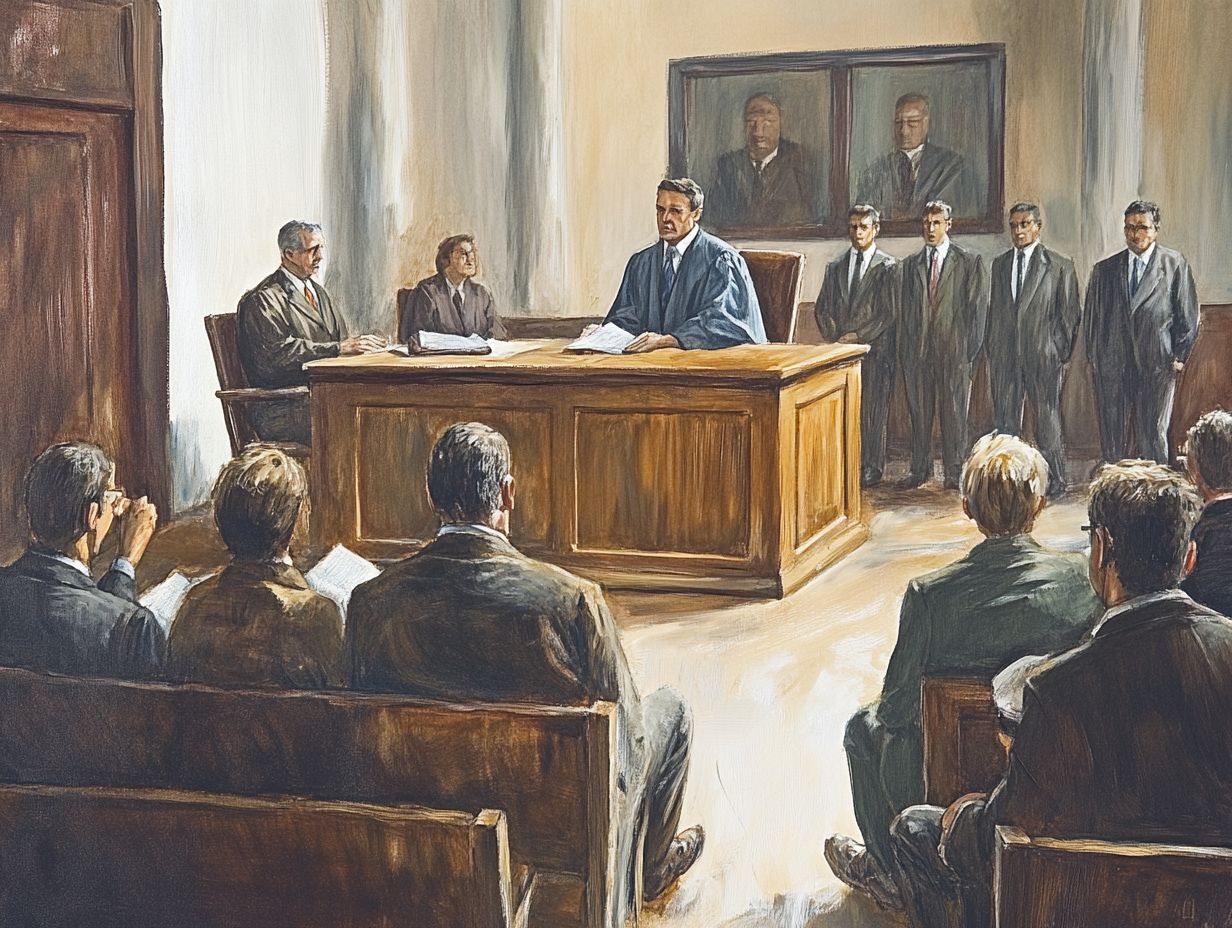
Common violations include denial of a fair trial, police misconduct, coerced confessions, inadequate legal help, and violations of due process.
Can the rights of the accused be violated during the arrest process?
Yes, rights can be violated during an arrest. This includes unlawful searches, excessive force, and not informing the accused of their rights.
What is considered a violation of the right to due process?
Violations include denying a fair trial and keeping evidence from the defense. Additionally, denying access to legal counsel is a serious breach.
How does police misconduct violate the rights of the accused?
Police misconduct can lead to wrongful convictions. Actions like using excessive force, planting evidence, or coercing confessions undermine justice.
What can be done if a person’s rights as an accused are being violated?
If someone’s rights are under threat, act fast! Seek legal help immediately and report the violation to the relevant authorities. You may also file a civil lawsuit for damages.
How can the rights of the accused be protected from common violations?
Protecting these rights requires proper law enforcement training. It s crucial to ensure access to legal representation and uphold due process in the criminal justice system.

